- magyar
- english
- Русский
6th CARPE Conference Strengthening Partnerships - 27-29 October, 2021
| Conference Opening |
27th October, 2021 Wednesday 13:00 - 14:45 (CET)
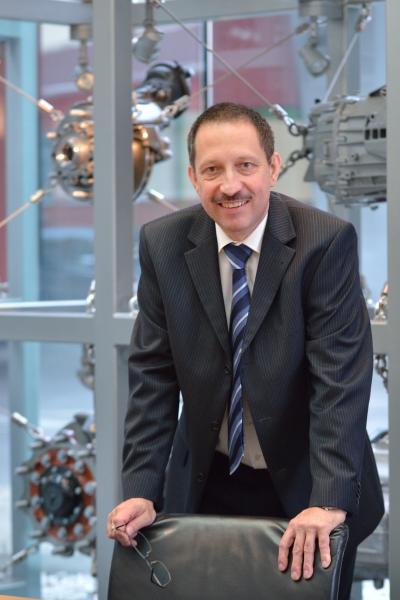 |
Roman Biondi Head of Sales Daimler Buses Roman Biondi was born in 1968 in Kassel/Germany. He grew up and went to school in Germany, Italy, the Netherlands and United Kingdom. In 1993 Roman Biondi gained a Master degree in Mechanical Engineering from Karlsruhe Institute of Technology (KIT) and in 1994 a MBA degree from INSEAD in Fontainebleau. He started in the 1994 as management trainee at Mercedes-Benz AG before joining the bus division in 1995. After various assignments in Stuttgart as well as in subsidiaries abroad, he assumed the responsibility as Head of Strategic Planning and Overseas Projects within Daimler Buses in 2003. From 2004 till 2007 he was subsequently appointed to President and CEO of EvoBus Italia. In October 2011 Roman Biondi assumed the responsibility as Head of Sales Mercedes-Benz Buses and Coaches of EvoBus GmbH. Since January 2013 he is heading sales of all brands (MB and Setra) of EvoBus GmbH. Since January 2015 he is heading the worldwide sales activities of Daimler Buses. Title: Transformation of public transport |
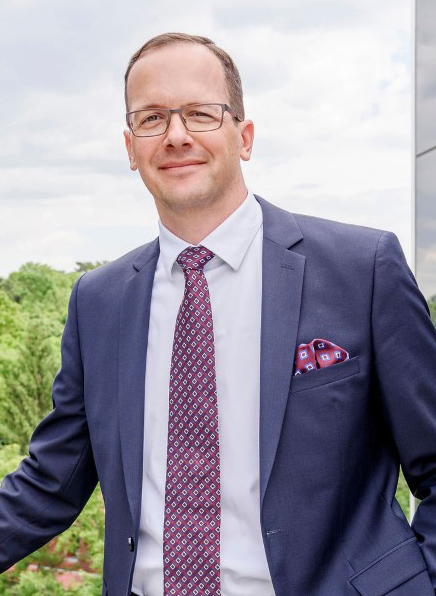 |
István Szabó PhD, Vice President for Science and International Affairs As a coordinator of the Hungarian funding system of scientific research, Dr Szabó oversees programmes to boost institutional excellence, calls for proposals to support basic research projects of individual researchers and research teams and further flagship initiatives such as the National Conference of Student Research Societies and the New National Excellence Programme, to promote widening participation of future generations. He is also responsible for science diplomacy to build active relations with science communities worldwide as well as organising national activities related to European research and innovation framework programmes (Horizon 2020, Horizon Europe) and assist Hungarian actors with professional background and funding to get successfully involved in bilateral science and technology (S&T) collaborations and joint transnational initiatives. He coordinates Hungarian membership in large international research infrastructures and professional organisations and also oversees the optimisation of domestic research infrastructure facilities. His role includes participation in shaping national policies such as the RDI Strategy and the Smart Specialisation Strategy of Hungary, and providing professional data and analyses to support evidence-based policy-making decisions and interactions. Title: Research, Development and Innovation Policy in Hungary – Strategic Framework and Main Programmes |
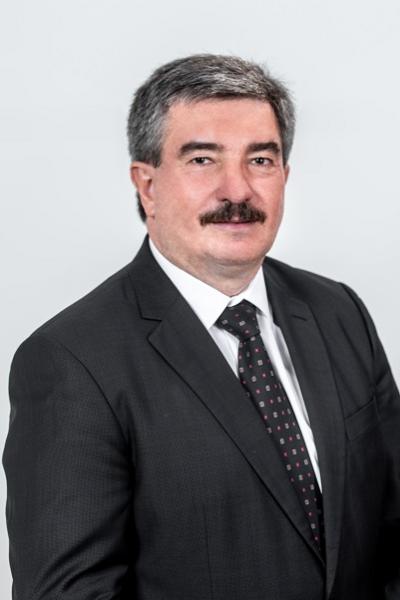 |
Zoltán Pajna President, General Assemly of Hajdú-Bihar County Title: Regional aspects of knowledge and innovation - the context of university-governance-industry interactions in Hajdú-Bihar County The presentation covers the overview of knowledge and innovation ecosystem in Hajdú-Bihar County, with special regard to regional lessons learnt in the past decade and regional vision for future aspects. The topic includes the evolution of S3 strategy, the county government's rich international experience in cluster policy and highlights how regional planning considers innovation and digitalisation and how regional strategies integrate such concepts.
|
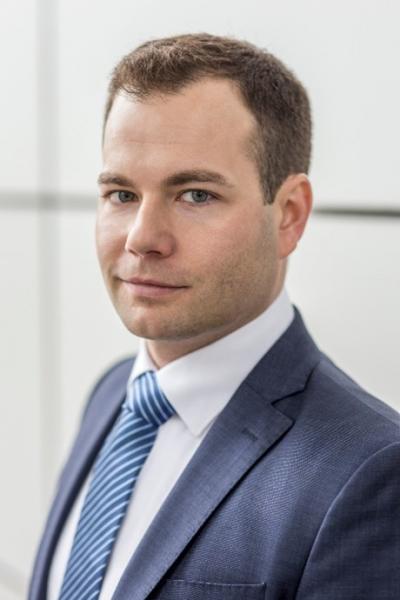 |
Dr.-Ing. Daniel Wagner Head of Innovation Management BMW Production System Introduction: Dr. Wagner studied mechanical engineering at the Technical University of Munich and finished his PhD at the Karlsruhe Institute of Technology. Since 2011 he had different functions within BMW regarding the electric drivetrain, Business IT and Digitalization. Since 2017 he is an Assessor for the European Excellence Award. Due to his current role in the context of innovation management, Dr. Wagner is also responsible for university and research cooperation within the production environment. To meet the future challenges in the automotive industry in terms of digitalization, electrification and sustainability, a transformation is necessary. To successfully go through this transformation, various players and collaborations are required. A very important factor is cooperation between research and industry. It aims at the following three pillars: Technology Transfer and Innovation, People Management and Stakeholder Dialogue. Title: Transformation of the automotive industry and the importance of cooperation between universities and the industrial sector. |
| Plenary Session I : Future Universities – Role of the Campus |
- Subtitle: “Campus life in a post COVID-19 world – The interplay between Physical and Digital”
28th October, 2021 Thursday 10:00 - 10:45 (CET)
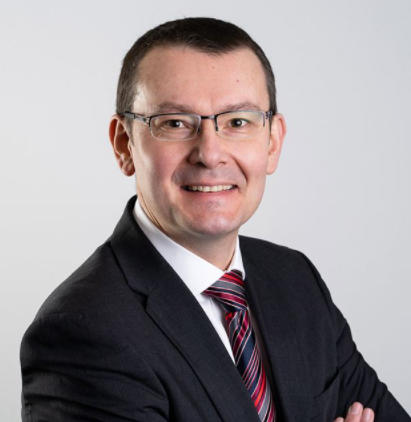 |
Milan Radosavljevic Professor Milan Radosavljevic is Vice-Principal and Pro Vice-Chancellor for Research, Innovation and Engagement at the University of the West of Scotland. He joined UWS in December 2013 as a Professor in Civil Engineering, before being appointed to the position of Assistant Dean – Research & Enterprise in the School of Computing, Engineering & Physical Sciences in September 2014. He held the post of Associate Vice-Principal Research & Enterprise between September 2017 and May 2020, and was then appointed to his current Executive role. Prof. Radosavljevic has held leadership positions across all areas of academic activity, including as School Director of Teaching & Learning and School Director of Enterprise, in addition to several programme leadership and course development roles at the University of Reading. Prof. Radosavljevic completed his PhD in Construction Management at the University of Dundee - where, subsequently, for several years he co-managed Scottish demonstration projects on behalf of Constructing Excellence and Communities Scotland. He has contributed his expertise at institutions globally - including the Norwegian School of Management, Tallinn University of Technology, University of Ljubljana, Shandong University, University of Cambridge, City University London - and has developed and delivered numerous executive courses in the UK and abroad to the total value of over £1m. His research track record includes predominantly industry-led projects to the total value of over £40m. Key projects include Digital Dairy Value Chain, Built Asset Lifecycle Intelligence (BALI); embodied energy optimisation for concrete structures; Building Information Modelling (BIM) based whole-life costing; KanBIM on-site BIM platform development; and the London Olympics 2012 Programme Management review – delivered jointly with the Chartered Institute of Building (CIOB) and on behalf of the Olympic Delivery Authority. Prof. Radosavljevic co-authored one of the construction sector’s most comprehensive textbooks on construction management strategies, offering a clear theoretical framework to systematically improve its productivity. In addition to his academic experience, he has several years of leadership experience in the off-site construction sector in Slovenia and over the years has been a regular keynote or invited speaker at international industry Project Management conferences for the Energy and Construction sectors. |
Introduction
For much too long, university campus environments have been taken for granted and the pandemic has revealed there is much more to campus life than just attending lectures. This session thus addresses the role of the campus in the making of society, its culture, wealth and wellbeing. It looks at the campus space as a conduit of human development, potentially leading to a major rethink of how we design and utilise university campuses.
The COVID-19 pandemic has proven that in many circumstances virtualisation renders physical attendance a thing of the past, highlighting the role of campus far beyond didactic instruction. We must learn from this to ensure campus life – Digital and Physical – is central to learning and teaching.
Questions:
- What is campus life? What elements does it include?
- How can we achieve resilience of campus for the future?
- What are the benefits of the interface between physical and digital?
Agenda
- Welcome and short introduction to session incl. moderation: Mika Suutari, Head of Learning Environment Services, Turku UAS
- Impulse by Milan Radosavljevic, Vice-Principal of Research, Innovation & Engagement, UWS
- Discussion
| Plenary Session II : Universities in Innovation Ecosystems |
- Subtitle: „Potential to expand regional innovation ecosystems to an international level“
28th October, 2021 Thursday 14:00 - 14:45 (CET)
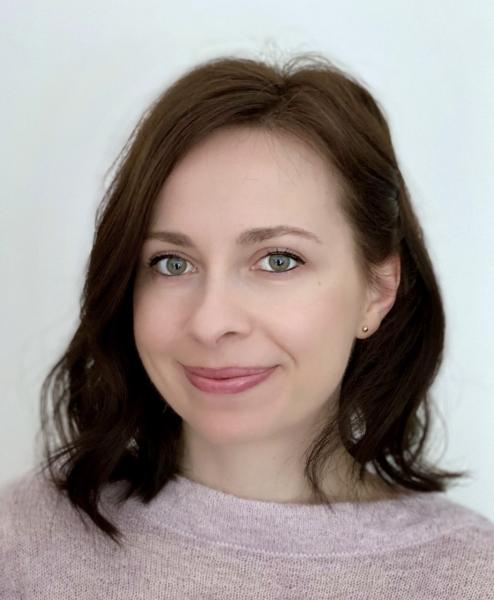 |
Kamila Kozirog Research and Innovation Policy & Project Officer, European University Association (EUA)
|
Introduction
Universities play a key role in fostering innovation processes on regional level. In 2020, the European Commission’s Open Innovation Strategy and Policy Group (OISPG) recommended that innovation policy must be now developed within the context of the emerging paradigm Open Innovation 2.0. This new mode “blurs the lines” within a quadruple helix of government, industry, universities and communities/citizens championing the creation of dynamic open innovation ecosystems.
This multi-actor approach is key and often leads to new organisational forms or collaborative formats to enhance regional innovation. Within this mode, Universities have a central role in making connections and co-creating engagement across trans- and interdisciplinary partners. In line with their core tasks of education, research and transfer, the University also plays an integral part in the knowledge creation and innovation process of cities and regions and contribute to the solutions of global challenges. The question is how regional innovation ecosystems can expand to an international level through strategic partnerships? What are the opportunities to strengthen international collaboration and innovation?
Aim of the session is
- To provide input on the concept and transformation of regional innovation ecosystems and the role of universities in this regard
- To showcase good practice examples from different CARPE partners
- To discuss how CARPE partners can foster innovation by expanding regional innovation ecosys-tems to an international level (e.g. sharing research facilities, implement challenged-based learning projects, foster entrepreneurship etc.)
Agenda
- Welcome and introduction to the session (Moderator: Helen Kennedy, Head of Research UWS)
- Impulse presentation “The Role of Universities in Regional Innovation Ecosystems” (Kamila Kozirog, Policy & Project Officer | Research & Innovation/ EUA )
- Q & A
Good practice examples from CARPE partners:
- Utrecht Science Park INNOVATIONLAB
- Supporting regional strengths and international collaboration through HEI-based ecosystems – Turku UAS
- Discussion
| Plenary Session III : Aligning Science with Society in Research Project |
29th October, 2021 Friday 10:00 - 10:45 (CET)
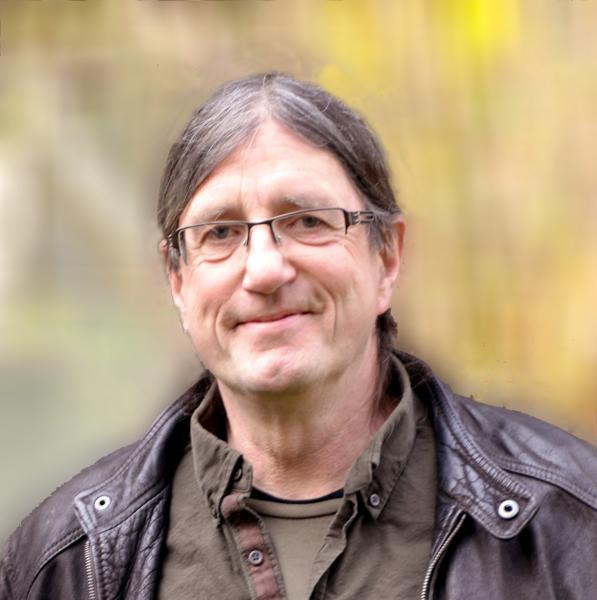 |
Norbert STEINHAUS, Dipl.Ing.agr. Norbert STEINHAUS, Dipl.Ing.agr. has been a board member of Wissenschaftsladen Bonn (WILA Bonn) since 1990. In the last 20 years he worked in national and international projects on citizen participation in science and technology or on responsible research and innovation. Currently he coordinates the H2020 project TeRRIFICA (adaptation to climate change) and is consortium partner in the H2020 project Allthings.bioPRO (bioeconomy). Since 2007 he is coordinator and international contact of LIVING KNOWLEDGE, the international Science Shop network. Currently, he is a member of the Mission Assembly for the Mission area: Soil health and food of the European Research Framework Program ‚Horizon Europe‘. He is also an active member of APUCEN (Asian Pacific University Community Engagement Network) and networks in local, regional, national and international networks such as NCCPE (National Collaborative Centre for Public Engagement, UK) or GUNI (Global University Network for Innovation) and GACER (Global Alliance on Community Engaged Research) as well as Canadian and US based Community Based Research (CBR) and knowledge mobilization networks. |
Introduction of the Session
Bridging the gap between science and society has been a challenge for decades. We are close to consensus that the broader society needs to be involved in decisions about the shape and direction of research and innovation in order to contribute to smart, inclusive and sustainable growth of our societies. Citizens all around Europe are showing growing interest in participatory activities: their engagement not only in social movements and voluntary associations, but also in science-related activities. Thus, Responsible Research and Innovation (RRI) has become one of the key words on the European stage, transdisciplinary collaboration is another one on the agenda, just like Citizen Science or Co-Creation. But what opportunities arise and what challenges must be faced if participatory elements are to be integrated more strongly into research projects? How can participation already be generated in the research design? How can participatory approaches be made clear in research proposals? The lecture is intended to provide an impulse for subsequent questions and discussions.
Aim of the session is:
- To raise awareness to the topic of citizen involvement in research and education projects
- To learn potential methods of how to address citizen involvement in transdisciplinary projects
Agenda
- Welcome and introduction to the session (Moderator: Kathrin Rath, Coordinator International research, HAW Hamburg)
- Presentation „Aligning Science with Society in (Research) Projects“ (Norbert Steinhaus, Wissenschaftsladen Bonn)
- Discussion


